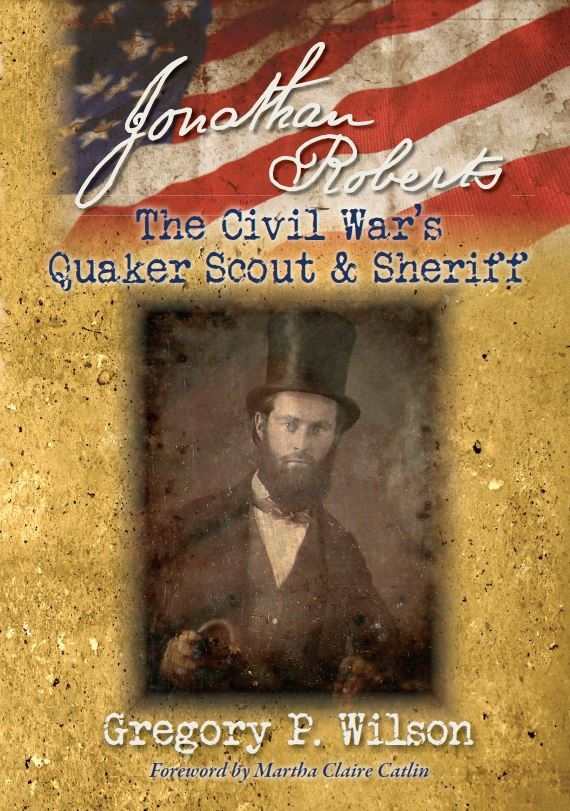Jonathan Roberts
The Civil War's Quaker Scout and Sheriff
This extraordinary and fascinating biography paints a larger picture of life in the Quaker community of Virginia during the Civil War.
Gregory P. Wilson’s biography of his great-great-grandfather is well researched and entertaining, standing tall in the huge crop of books written about one’s ancestors. Jonathan Roberts: The Civil War’s Quaker Scout and Sheriff documents a truly unique historical figure, a Yankee transplant and pacifist member of the Society of Friends who was nonetheless an effective military scout and law enforcement officer in northern Virginia during its most tumultuous period. The author goes well beyond the scope of a standard biography to give detailed background about the characters that this firebrand interacted with (including generals from both sides of the conflict), and to provide a broader view of daily life in this important region during the Civil War.
Wilson intended to write a short genealogy report for his family, but as he uncovered more information about Roberts, this became a genealogy on steroids. There are extensive footnotes, nearly one hundred pages of appendixes, extensive quotes from primary sources, and numerous reproductions of period documents, maps, and photographs that document Roberts’s intriguing activities before, during, and after this time of upheaval.
Wilson writes authoritatively. While he admires his ancestor, he does not gush, instead laying out facts and anecdotes to portray him. Roberts is described as a man of uncommon character, determination, and “unswerving faith,” demonstrated by numerous examples of his morality and professionalism in the face of danger and unpopular sentiment. As this hotly contested region swerved between Union and Confederate forces, Roberts dodged lynch mobs, swallowed his repugnance over having to arrest black freedmen for crimes even as former secessionists evaded other more serious offenses, and lost most of his livestock, buildings, and farm income.
The book could be tighter. Many chapters include summaries that are unnecessary, since the book is so well organized; each chapter focuses on Roberts’s specific roles, or specific historical topics such as abolition, the Quaker antebellum “socio-agrarian experiment” of farming with free labor in the South, Roberts’s work as a Union military scout, his duties as a justice of the peace in postwar Fairfax County, and the secessionists’ return to social and economic power during Reconstruction. These summaries don’t appear in each chapter, and because they just rehash information, they feel redundant.
The chapter relating Roberts’s efforts to secure federal pension benefits for disabilities arising from his war injury (incurred tangling with the notorious Gray Ghost of the Confederacy, John Mosby) is peppered with four overly graphic images of his ulcerated limbs, striking a discordant note in this otherwise elegant historical biography.
Extensive Civil War literature already exists, but Wilson’s book adds new information about life in the Quaker community of northern Virginia during wartime, and offers a portrait of an extraordinary man and the singular public roles that he served. Jonathan Roberts was well respected for the strength of his convictions even by his slave-owning Virginia neighbors, and this narrative about this fascinating figure dramatically describes how life shifted in this corner of the American South.
Reviewed by
Rachel Jagareski
Disclosure: This article is not an endorsement, but a review. The publisher of this book provided free copies of the book and paid a small fee to have their book reviewed by a professional reviewer. Foreword Reviews and Clarion Reviews make no guarantee that the publisher will receive a positive review. Foreword Magazine, Inc. is disclosing this in accordance with the Federal Trade Commission’s 16 CFR, Part 255.

